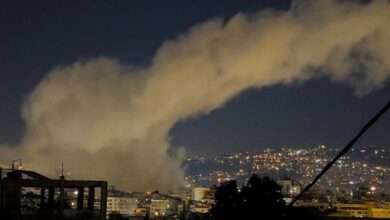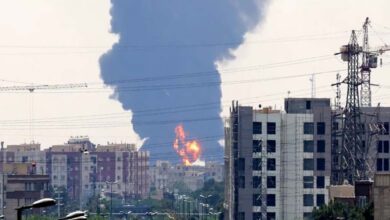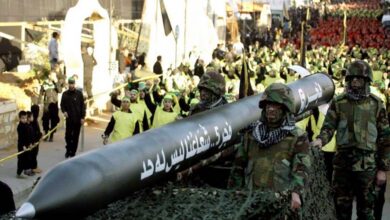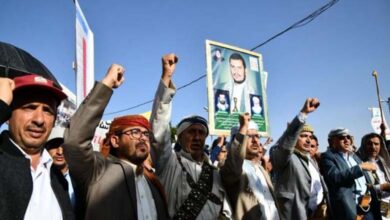“Loophole” in Gaza ceasefire negotiations… Hamas condition clashes with Israeli wall
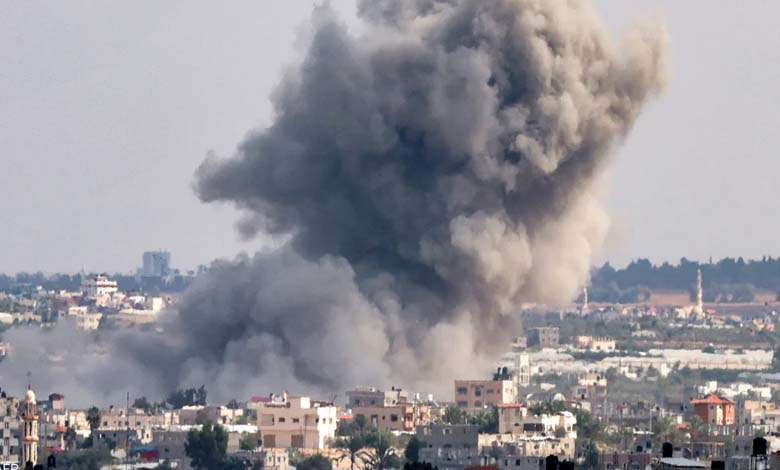
Amidst the momentum towards a possible ceasefire agreement in Gaza, talks for a ceasefire continue to collide with conflicting demands from both sides.
The American site Axios quoted Israeli officials as saying that Hamas‘s demand for “written commitments” from the United States, Egypt, and Qatar constitutes a major loophole that remains before mediators can come to the negotiating table and begin discussing the details of a ceasefire agreement and hostage release in Gaza.
According to the American site, Israeli and American officials are increasingly optimistic that recent discussions with Hamas leaders could lead to an agreement to release hostages held in Gaza and establish “sustainable calm” in the region.
In response to Israel’s latest proposal regarding a prisoner exchange and ceasefire, Hamas called on the United States, Egypt, and Qatar to commit to continuing negotiations on the second phase of the deal without a specific deadline, while the first phase of the deal is still ongoing.
Middle ground?
The White House and the U.S. Central Intelligence Agency are trying to find a middle ground to bridge the gap between Israel and Hamas on this issue.
U.S. officials said an American team arrived in Doha on Friday to participate in the talks, but there are no current plans for CIA Director Bill Burns to travel to the region.
Axios reported that senior Israeli officials said Mossad director David Barnea traveled to Doha on Friday and met with the Qatari Prime Minister.
The officials said Barnea was supposed to convey a message to the agreement’s mediators that Israel does not accept Hamas‘s demand for a written commitment regarding negotiations on the second phase of the agreement.
A statement from the Israeli Prime Minister’s Office after the meeting indicated that Israeli negotiators would travel to Doha next week to continue the talks, adding: “There are still gaps between the parties.”
Senior Israeli officials said the remaining gap between the parties revolves around Article 14 in the Israeli proposal, concerning the duration of negotiations that Hamas and Israel are supposed to initiate during the first phase of the agreement, in order to agree on terms for the second phase of the agreement.
According to the original text of Article 14, the United States, Qatar, and Egypt will “make every effort possible” to ensure that these negotiations lead to an agreement and that the ceasefire continues as long as the negotiations continue.
In response to the Israeli proposal on Wednesday, Hamas requested the removal of the phrase “will make every effort possible” and its replacement with the word “guarantee.”
U.S. officials told Axios that the Biden administration proposed a compromise by suggesting the use of the word “commit,” which the administration considers less binding than “guarantee” but more engaging than “will make every effort possible.”
What is Tel Aviv’s position?
Israeli officials argued that if the agreement guarantees the written commitment demanded by Hamas, the movement could prolong negotiations on the second phase of the agreement indefinitely.
The ceasefire could be extended by 42 days as part of the first phase of the agreement, without Hamas releasing soldiers and men under the age of 50, as stated in the proposed second phase of the agreement.
Senior Israeli officials said that in such a scenario, it would be “extremely difficult” for Israel to resume fighting without it being seen as a violation of the agreement.
Officials said that if Israel is found to be in violation of the agreement, the United Nations Security Council could decide to impose a ceasefire without the release of all hostages.
On the other hand, Hamas official Osama Hamdan told France Presse on Friday that the movement was waiting to hear Israel’s position on its response “Saturday,” noting that Hamas‘s response to the Israeli proposal included “some ideas… to overcome the gaps.”
Feeling the pulse
According to the Hamas official, “if Israel’s response is positive, it won’t take long to reach a detailed agreement.”
The last remaining loophole regarding Article 14 was at the heart of a meeting convened by Israeli Prime Minister Benjamin Netanyahu on Thursday night before Mossad director’s visit to Doha, according to senior Israeli officials.
A senior Israeli official said the meeting decided that Barnea should address this issue primarily and convey a message to Qatari Prime Minister Mohammed bin Abdul Rahman Al Thani that Israel does not tolerate the changes Hamas seeks to make to Article 14.
However, Barnea explained to the Qatari Prime Minister that Israel believes this issue can and must be resolved to move forward with detailed negotiations on implementing the agreement.
-
Hamas intensifies its defense of Gaza after Israel expands its ground attacks
-
Hamas surprises Israel with its largest-ever attack amid reports of soldiers being killed and kidnapped
On Friday, White House press secretary Karine Jean-Pierre told reporters that President Biden was optimistic about the possibility of an agreement but emphasized that there was still a lot of work to be done, adding, “It’s time to end the war.”



